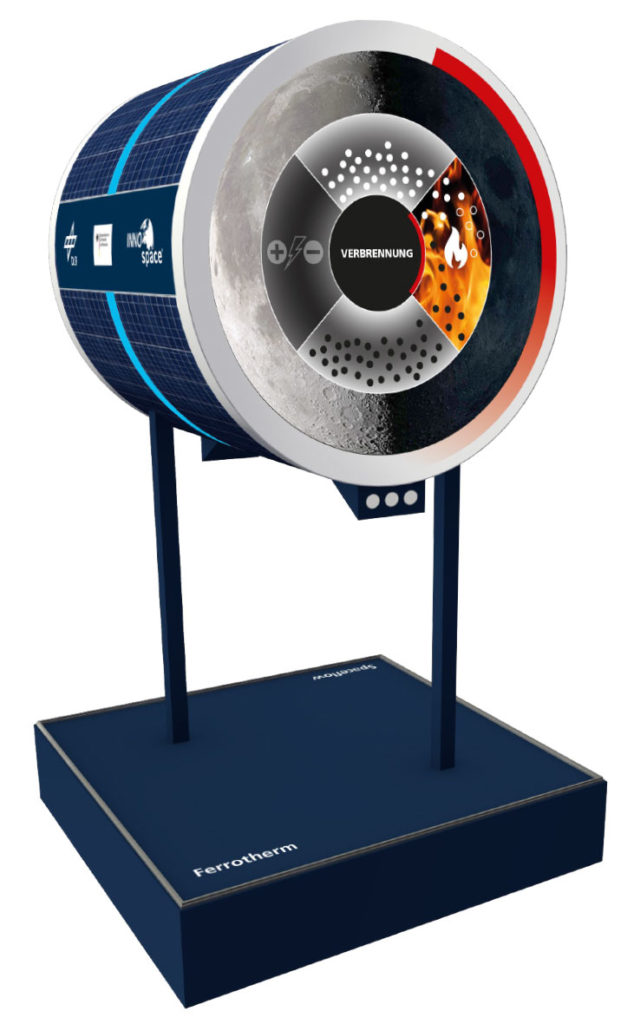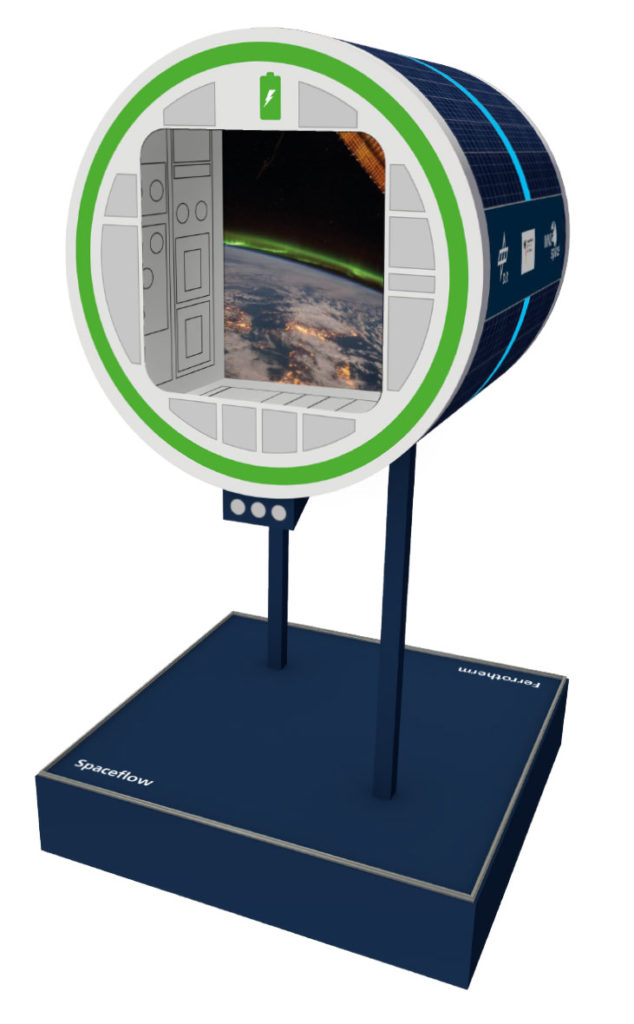Innovative energy generation and storage in space and on Earth
How can energy be generated on the Moon? This is an intriguing question, as the long-term energy supply for the colonisation of the Moon has not yet been determined. On Earth’s natural satellite, temperatures fluctuate considerably and there is no solar energy available during the two-week-long lunar nights. Current storage systems such as batteries or thermal storage systems are not suitable for a long-term supply. In addition, there are no fossil fuels on the Moon. The energy supply must therefore be ensured with lunar regolith, a mixture of various metal oxides. This is why the Fraunhofer Institute for Surface Engineering and Thin Films IST, together with the Fraunhofer Institute for Chemical Technology ICT, is developing a process with which metallic iron can be extracted from regolith and used as fuel. The unique solution utilises a direct electrochemical process to recycle the iron oxide and produce iron again, generating and storing energy while bypassing the previously known path via hydrogen. Visitors can find out more about this ferrothermal energy generation process in the ‘INNOenergy’ exhibit in the Space Pavilion at ILA 2024.
Satellites and space stations orbit in isolation and far from Earth. This is why energy security plays a major role in spaceflight. As solar energy is often used to power these spacecraft, reliable long-term energy storage systems are essential to compensate for fluctuations in direct sunlight. However, the battery systems currently used in spacecraft have considerable deficits in these areas. This is why the Fraunhofer Institute for Environmental, Safety and Energy Technology UMSICHT is developing ‘SpaceFlow’, a new energy storage concept based on porous metal foam electrodes and zinc-polyiodide electrolytes that fully fulfils the requirements for space applications. This process is also explained with the INNOenergy exhibit.
Both projects won a prize in the International INNOspace Masters competition organised by the German Space Agency at DLR in 2021 and 2022.
Links:
German Aerospace Center (DLR)
German Space Agency at DLR, Innovation and New Markets division
E-Mail contact-dlr@DLR.de

